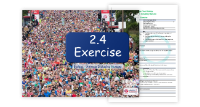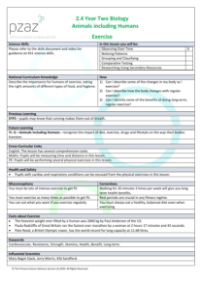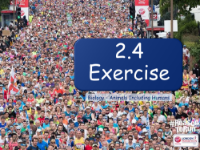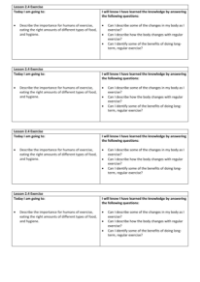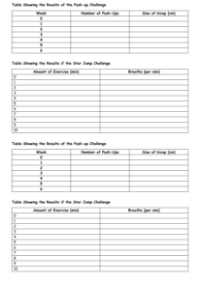Exercise - Self Assessment
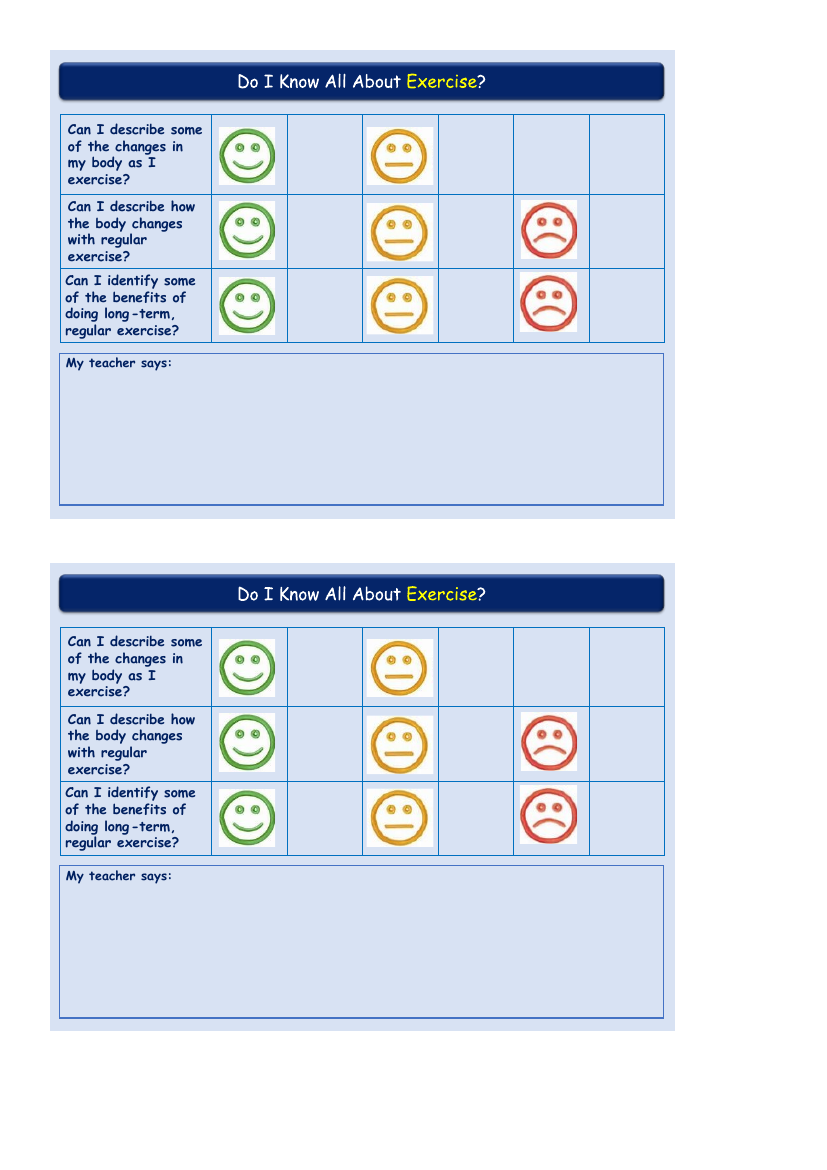
Science Resource Description
Understanding the effects of exercise on the body is crucial for developing a healthy lifestyle. When we exercise, immediate changes occur in our body, such as increased heart rate, faster breathing, and sweating. These responses help to increase the flow of oxygen to our muscles and remove waste products like carbon dioxide. Additionally, as we continue to exercise, we may notice that our muscles become more toned, our endurance improves, and we feel more energetic. Being able to describe these changes helps us recognise the positive impact that physical activity has on our bodily functions.
Moreover, engaging in regular, long-term exercise brings about significant changes to the body. With consistent effort, our cardiovascular health improves, reducing the risk of heart diseases. Our bone density can increase, making us less susceptible to fractures. Regular exercise also contributes to better mental health by reducing stress, anxiety, and depression. Identifying these benefits encourages a commitment to sustained physical activity, which is essential for maintaining overall well-being. Recognising and articulating these changes and benefits is an important step in valuing and prioritising exercise as part of our daily lives.

